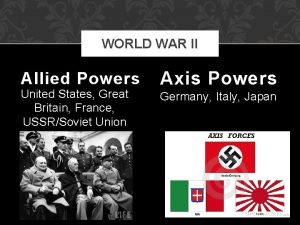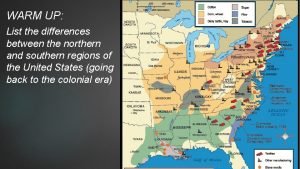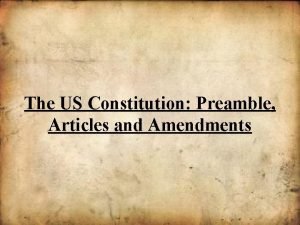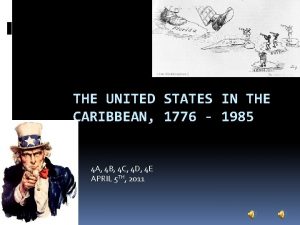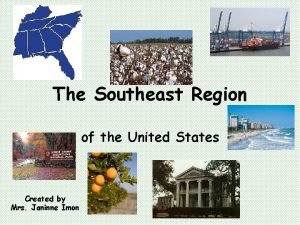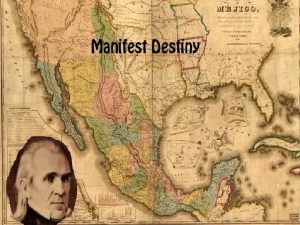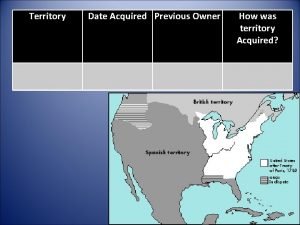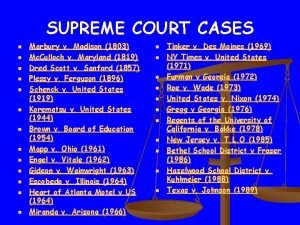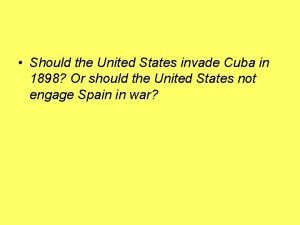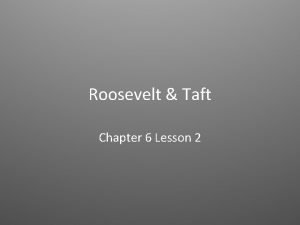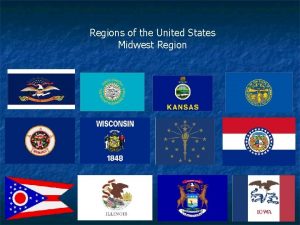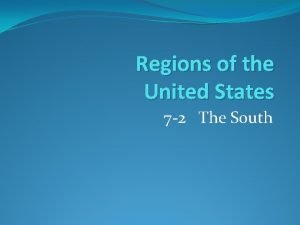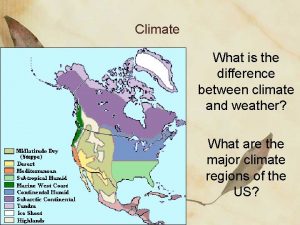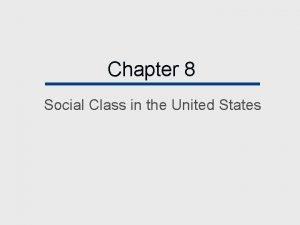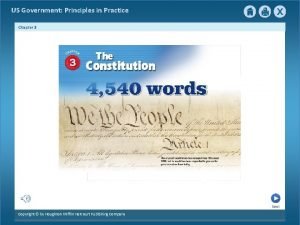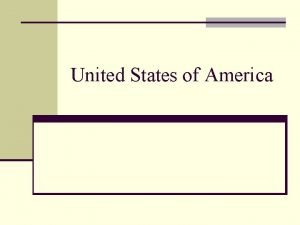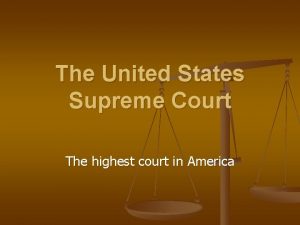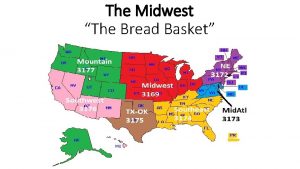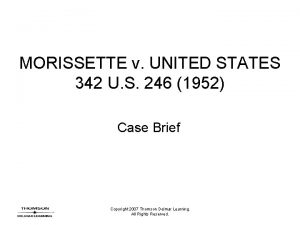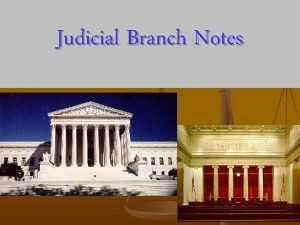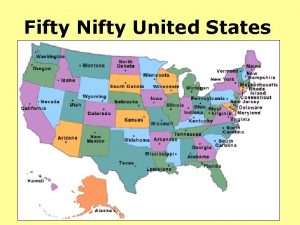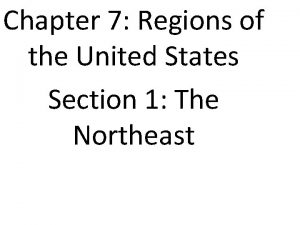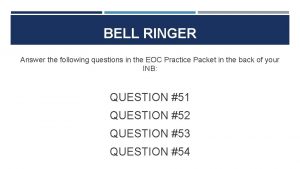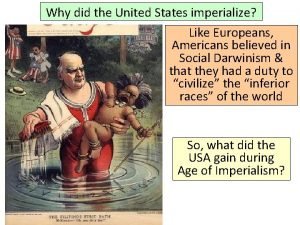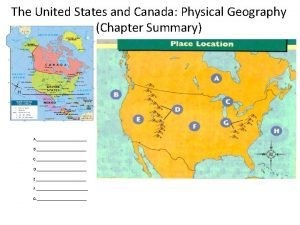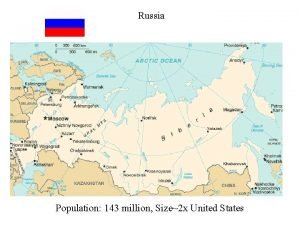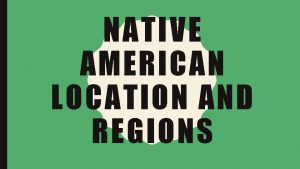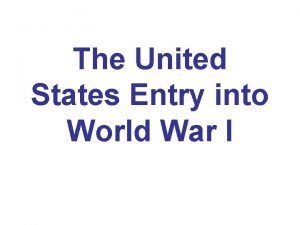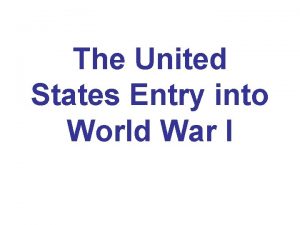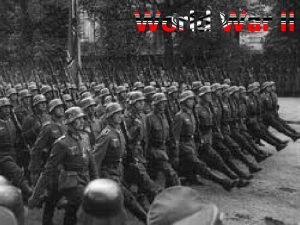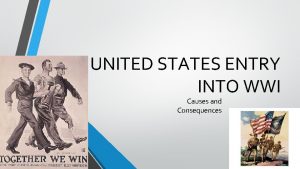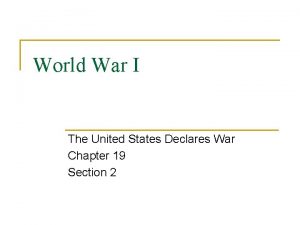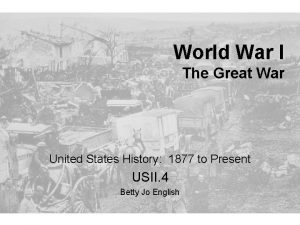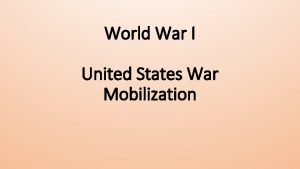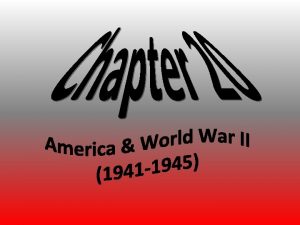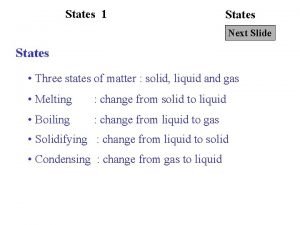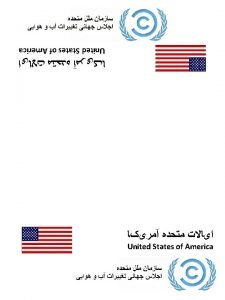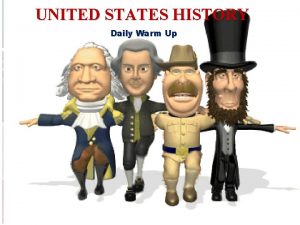The United States Entry into World War I



























































- Slides: 59

The United States Entry into World War I

At the start of the war. . . • US President Woodrow Wilson declared a US policy of absolute neutrality.

Why Neutrality? Think past units of study! • 1/3 of the US population were either first or second generation immigrants from England, France, Germany, etc. • American tradition (up to that point) of staying out of foreign wars – “it’s over there…. ”

Why Neutrality? • US progressivism was intent on taking care of America first • No aggression had been shown towards the US by either side

How does the US go from Neutral to an Ally? Many Reasons!!!

Presidential Preference/Diplomacy • In his own book, Congressional Government, Wilson clearly states an admiration for the British parliamentary system and democracy • England France have similar governments to the US, while Germany and AH are ruled by a monarchy

Submarine Warfare • British blockades of Germany strangled the country of necessary provisions and war-related items • Germany resorted to submarines to get around the blockades and to sink ships from any country supplying their enemy • There was no written sea law for the use of such a new weapon


Submarine Warfare • May 7, 1915 – well after warning all ships traveling the high seas, German u-boats sunk a British passenger liner named the Lusitania, due to the fact that it had been loaded with over 4, 000 cases of small arms destined for England • Unfortunately, 128 Americans had been on board and went down with the ship


Submarine Warfare • President Wilson and the American public hadn’t been told that the Lusitania had been used by the British to ship weapons, therefore public opinion was that the Germans were murderers and barbarians

Submarine Warfare • With increased international pressure, and to appease the US, Germany signed the Sussex Pledge, in effect stating that they would announce themselves to ships of questionable nature before firing upon them

Submarine Warfare • By January 1917, Germany felt that they could break the long stalemate in Europe and win the war IF they began to take control of the seas once again • Although ships were sunk without warning, no Americans were killed and no American ships sunk, until the Laconia was sunk with Americans on board (Feb. 1917)


And what else draws us into war?

Pre-War Economic Ties • By 1913, more than 75% of all US trade was being done with countries associated with the Allied Powers

Neutral Trade with Countries • As a neutral, the US was free to trade with either side during the war, as long as the items were restricted to non-wartime items (ie. guns, ammunitions, etc. ) • Trade was more readily available to coastal Allied countries, especially France and Great Britain.

Wartime Economic Ties • US trade and loan totals: Allied powers = $2. 3 billion (plus) Central powers = $275 million

Uh Oh. . . Something Else! • Release of the Zimmerman Note. . .

Key Players • Zimmermann – German Foreign Minister • Bernstorff – German Ambassador to the United States • Von Eckhardt – German Ambassador in Mexico

Key Dates - 1917 • Jan. 19 – British interception of document • Feb. 24 – Wilson receives document • Mar. (no specific date) – Wilson gives it to the papers • Apr. 6 – US enters war

Purpose of Zimmermann Note • The Zimmermann Note – German Foreign Minister Arthur Zimmerman had proposed an alliance between Germany and Mexico, calling for Mexico to attack the US southern borders in order to re-capture their lost lands. • The plan was to keep the US out of Europe long enough so that Germany could win the war before we arrived on behalf of the Allies.

PROPAGANDA

Propaganda • The Trans-Atlantic Cable was a telegraph cable running from North America to Europe – England France maintained control of almost all of the information coming out of Europe during the war • “Information” about the war was distorted and twisted to make the Central Powers look especially brutal and barbaric




Germans as “Huns” • A derogatory term for Germans. • Basis: Though Attila's forces (Attila the Hun) would have contained many Goths and other Germanic peoples in addition to his Mongolian tribes people, this use of the term seems to derive from a simple desire to characterize the Germans as expansionist barbarians.

In other words. . . • Huns – a Central Asian tribe legendary for its ferocity. • Why would this name be applied to the Germans?




American Use of Propaganda • George Creel, former newspaperman, heads up the Committee on Public Information • Appointed by Woodrow Wilson after US entry into war • Used artists, writers, and speakers to “sell” the war to Americans





American Use of Propaganda • Women’s groups, social clubs, the media and even churches became platforms for what Creel called “the world’s greatest adventure in advertising”


Propaganda to Engage Citizens • Posters would use images and phrasing that would be familiar to the American public • Posters would also be specific for groups of people when necessary


THE DRAFT & AMERICANS WHO FOUGHT

The Draft • The Selective Service Act of May 1917 was established to draft young men for the military service • Early on men age 21 -31 were drafted – by late 1918 it extended to include men age 18 -45

The Draft • By November 1918 more than 24 million had registered for the draft • From those a lottery selected 3 million to serve in the war



Women in the War • Filled a variety of roles in the war effort including caregivers (nurses) and home defense • A small number worked in the signal corps (communications)

Telephone Operators

Navy Nurses aboard USS George Washington in 1918

African Americans in the War • Many had no choice where to serve – only the Navy and Army accepted recruits • Served as laborers, delivery personnel, messengers, and in the kitchen (within the navy)

African Americans in the War • Several regiments were loaned out to the French and saw combat th • The 369 Regiment or “Harlem Hell Fighters” was cited most for their bravery and as the first to reach the Rhine River in Germany



Sergeant Henry Johnson, 369 th Infantry ("Harlem Hellfighters"), who single-handedly fought off a German raiding party to save his comrade, Private Needham Roberts, 1918.

African Americans Post-War • Frustrated at the freedoms that they experienced, but did not return to in the US • Experience (and freedom) overseas led to the early beginnings of the Civil Rights movement

Did not use from here to end

Espionage and Sabotage • The Zimmerman Note – German Foreign Minister Arthur Zimmerman had proposed an alliance between Germany and Mexico, calling for Mexico to attack the US southern borders in order to re-capture their lost lands • The plan was to keep the US out of Europe long enough so that Germany could win the war before we arrived on behalf of the Allies

The Russian Revolution • By 1917, Russia had suffered more than 4 million casualties, and the Central Powers had driven deep into the country • Due to its czarist government, the US had been reluctant to aid the Allies. In March 1917, Czar Nicholas II was overthrown by a republican government, clearing the way for the US to finally join the Allied effort

The Final Decision • Between March 16 and March 18, three American ships bound for the Allies were sunk by German U-Boats. • On April 6, 1917, President Wilson signed a war resolution to join the Allies.
 United states acquisitions and annexations 1857-1904
United states acquisitions and annexations 1857-1904 Conversion method in single entry system
Conversion method in single entry system New entry entrepreneurship
New entry entrepreneurship Single entry system and double entry system
Single entry system and double entry system Was the united states on the axis powers or allied powers?
Was the united states on the axis powers or allied powers? Settlement patterns
Settlement patterns Sectionalism map of the united states
Sectionalism map of the united states Olympic soccer winners
Olympic soccer winners United states v. nixon significance
United states v. nixon significance United states student association
United states student association The united states ought to provide a universal basic income
The united states ought to provide a universal basic income Preamble of us constitution
Preamble of us constitution The united states in the caribbean 1776-1985
The united states in the caribbean 1776-1985 Southeast region physical features
Southeast region physical features Expansion of the united states of america 1607 to 1853 map
Expansion of the united states of america 1607 to 1853 map How did nicholas novikov describe the united states
How did nicholas novikov describe the united states Who was the previous owner of oregon country
Who was the previous owner of oregon country Awake united states date and author
Awake united states date and author Heart of atlanta motel v. united states
Heart of atlanta motel v. united states Why did the united states invade cuba in 1898?
Why did the united states invade cuba in 1898? Chapter 6 lesson 2 roosevelt and taft
Chapter 6 lesson 2 roosevelt and taft Midwest region of the united states
Midwest region of the united states 7 regions of the united states
7 regions of the united states The united states is the greatest buyer positive degree
The united states is the greatest buyer positive degree United states and canada physical map
United states and canada physical map World geography
World geography World map with latitude and longitude lines printable
World map with latitude and longitude lines printable 50 nifty united states
50 nifty united states Chapter 2 free enterprise in the united states
Chapter 2 free enterprise in the united states Perceptual regions of the united states
Perceptual regions of the united states Amelia butler clown
Amelia butler clown Subtropical united states
Subtropical united states Consequences of social class
Consequences of social class Physical geography of the united states
Physical geography of the united states Ibn-tamas v. united states
Ibn-tamas v. united states When mr pirzada came to dine sparknotes
When mr pirzada came to dine sparknotes United states government: principles in practice
United states government: principles in practice Geographical position usa
Geographical position usa United states lactation consultant association
United states lactation consultant association Plessy v ferguson summary
Plessy v ferguson summary East of mississippi river
East of mississippi river Bread basket on east jefferson
Bread basket on east jefferson How many states canada
How many states canada United states v. cruikshank apush
United states v. cruikshank apush Morisette v us
Morisette v us What is manifest destin
What is manifest destin Judicial branch
Judicial branch Alabama alaska arizona arkansas
Alabama alaska arizona arkansas What are the 7 regions of the united states?
What are the 7 regions of the united states? Bell ringer response sheet
Bell ringer response sheet Why did the united states imperialize
Why did the united states imperialize Symbols of america
Symbols of america United states jaycees
United states jaycees Uscdi
Uscdi Italy population 1939
Italy population 1939 Watts v united states
Watts v united states The physical geography of the united states and canada
The physical geography of the united states and canada Polovtsian
Polovtsian Native american tribes in the united states
Native american tribes in the united states Melting pot salad bowl
Melting pot salad bowl




